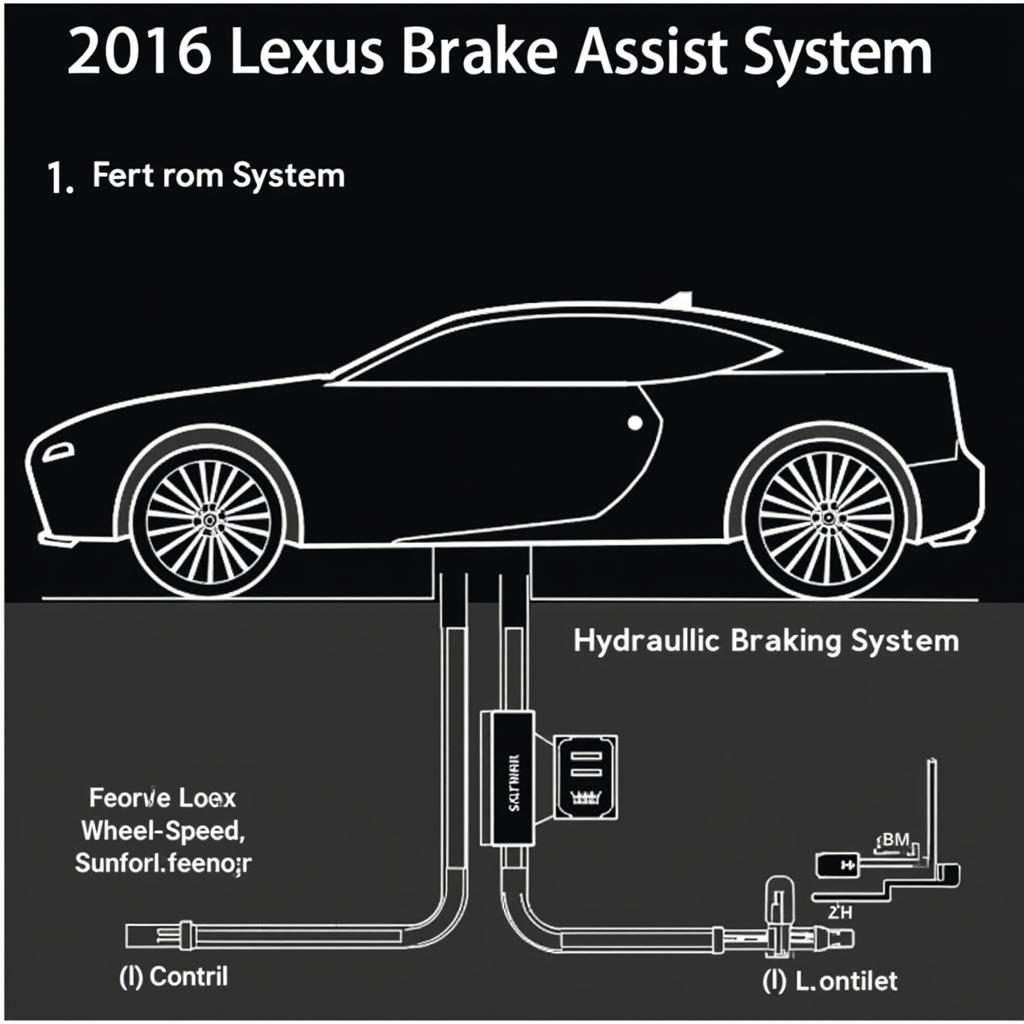A dead battery is a common cause of vehicle starting problems. Recognizing the signs of a dead battery can save you time, money, and potential hassle. This article will explore the common signs of a dead battery and provide helpful information to diagnose and address the issue.
Common Signs Your Car Battery is Dead
If your car battery is nearing its end, there are several warning signs you might experience. These include:
- Slow Engine Crank: When you turn the key, the engine cranks slowly or struggles to turn over. This is often one of the first and most noticeable signs of a failing battery.
- Clicking Sound When Starting: Instead of the engine cranking, you hear a rapid clicking noise when you turn the key. This clicking indicates the starter motor is receiving insufficient power from the battery to start the engine.
- Dim or Flickering Lights: Observe your headlights, interior lights, and dashboard lights. A weakening battery may cause them to appear dimmer than usual, especially when starting the engine.
- Warning Lights on Dashboard: Modern cars often display a battery warning light on the dashboard when the battery charge is low or there’s an issue with the charging system.
- Slow or Malfunctioning Electrical Components: A weak battery might struggle to power your vehicle’s electrical components, leading to slower power windows, a sluggish radio, or erratic behavior from other electronic accessories.
Other Reasons Your Car Won’t Start
While these signs often point to a dead battery, it’s important to remember that other issues can cause similar symptoms.
-
Faulty Alternator: The alternator is responsible for recharging the battery while the engine is running. A faulty alternator won’t be able to properly charge the battery, ultimately leading to a dead battery.
-
Parasitic Drain: A parasitic drain occurs when an electrical component in your car continues to draw power even when the car is turned off. This can slowly drain the battery over time, making it difficult or impossible to start your car.
-
Loose or Corroded Battery Terminals: Corrosion on the battery terminals can disrupt the flow of electricity, leading to starting problems.
If you’re unsure whether your battery is the culprit, you can have it tested at an auto parts store or by a mechanic. They can use a multimeter to measure the battery’s voltage and determine its health.
What to Do if You Have a Dead Battery
If you determine that a dead battery is the reason your car won’t start, you have several options:
- Jump-Starting: Jump-starting involves using jumper cables to connect your dead battery to a working battery from another vehicle. This can provide a temporary boost to start your car.
- Battery Charger: Using a battery charger, you can replenish your battery’s charge over several hours.
- Battery Replacement: If your battery is old, damaged, or no longer holds a charge effectively, it’s time for a replacement.
Tips for Extending the Life of Your Car Battery
Car batteries have a limited lifespan, typically lasting 3-5 years. However, you can take steps to maximize their longevity:
- Regularly Clean Battery Terminals: Disconnect the battery cables and clean the terminals using a wire brush and a baking soda and water solution to remove corrosion.
- Minimize Short Trips: Short trips prevent the alternator from fully recharging the battery. If possible, combine errands or opt for longer drives to give your battery a chance to charge properly.
- Turn Off All Accessories When Engine is Off: Avoid leaving headlights, interior lights, or electronic devices on when the engine is not running to prevent unnecessary battery drain.
- Park in a Cool Place: Extreme temperatures, especially heat, can accelerate battery degradation. Whenever possible, park your vehicle in a shaded or cool area.
Conclusion
Being able to identify the signs of a dead car battery can help you address the situation proactively and avoid unexpected breakdowns. By understanding the common indicators, potential causes, and available solutions, you can make informed decisions about your car’s battery health. Remember, if you’re unsure about diagnosing or addressing battery-related issues, it’s always best to consult a qualified mechanic.
FAQ
Q: How long should a car battery last?
A: Car batteries typically last between 3 and 5 years, but their lifespan can vary depending on factors like climate, driving habits, and battery quality.
Q: Can I drive my car with a bad battery?
A: While you might be able to drive for a short distance with a weak battery, it’s not recommended. Driving with a failing battery can lead to further damage to your vehicle’s electrical system.
Q: How can I tell if my car battery needs replacing?
A: If you experience symptoms like a slow engine crank, clicking noises when starting, dim lights, or warning lights on the dashboard, it’s a strong indication that your battery needs to be tested and potentially replaced.

